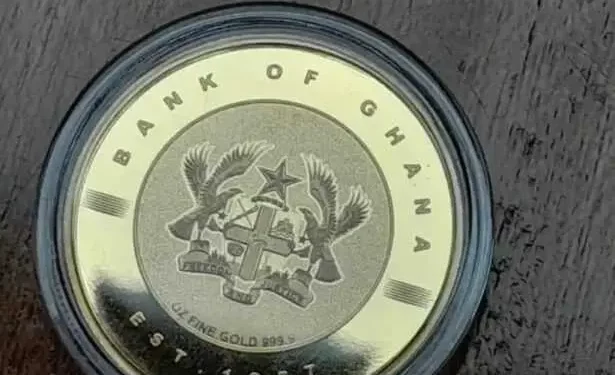BoG to Relaunch Ghana Gold Coin under ‘Cedi@60’ Initiative
The Bank of Ghana (BoG) has announced plans to relaunch the Ghana Gold Coin as part of the “Cedi@60” commemorative programme, with the aim of expanding public access to gold ownership and promoting financial inclusion.
Speaking at the 125th Monetary Policy Committee (MPC) press briefing on Wednesday, July 30, 2025, Governor of the Central Bank, Dr Johnson Asiama, underscored the symbolic and financial significance of the move, noting that the relaunch forms a critical pillar of the commemorative activities marking six decades of the Ghanaian currency.
“Even though there is a lot of interest in the Gold Coin, we need to relaunch it as part of the Cedi@60 programmes. We are coming back stronger on that programme. Every Ghanaian should be able to buy some form of gold, and that is exactly what this program intends to achieve,” Dr Asiama stated.
The revival of the gold coin initiative comes at a time when global demand for gold remains elevated, with Ghana maintaining its position as Africa’s top gold producer and a key player in the international bullion market.
Initially launched to diversify public investment options, the Ghana Gold Coin was introduced as a tradable asset to absorb excess market liquidity, strengthen the local currency, and serve as a hedge against inflation. Its reintroduction is expected to provide a more inclusive avenue for ordinary Ghanaians to participate in gold investment.
The programme, officials say, also aligns with the Bank’s broader domestic gold initiative, which prioritises the use of gold in reserves management and currency stabilisation.
Economists and market analysts have welcomed the announcement, describing the gold coin as a potentially low-risk savings instrument for households and an essential step towards building a vibrant local gold market.
“Encouraging savings through instruments backed by real assets like gold could deepen financial inclusion while providing stability to household portfolios,” said Dr Kwame Mensah, a financial economist at the University of Ghana Business School.
Other activities under the Cedi@60 celebrations include public exhibitions, educational campaigns, and policy dialogues aimed at chronicling the history and development of Ghana’s national currency, and its role in shaping macroeconomic policy.







